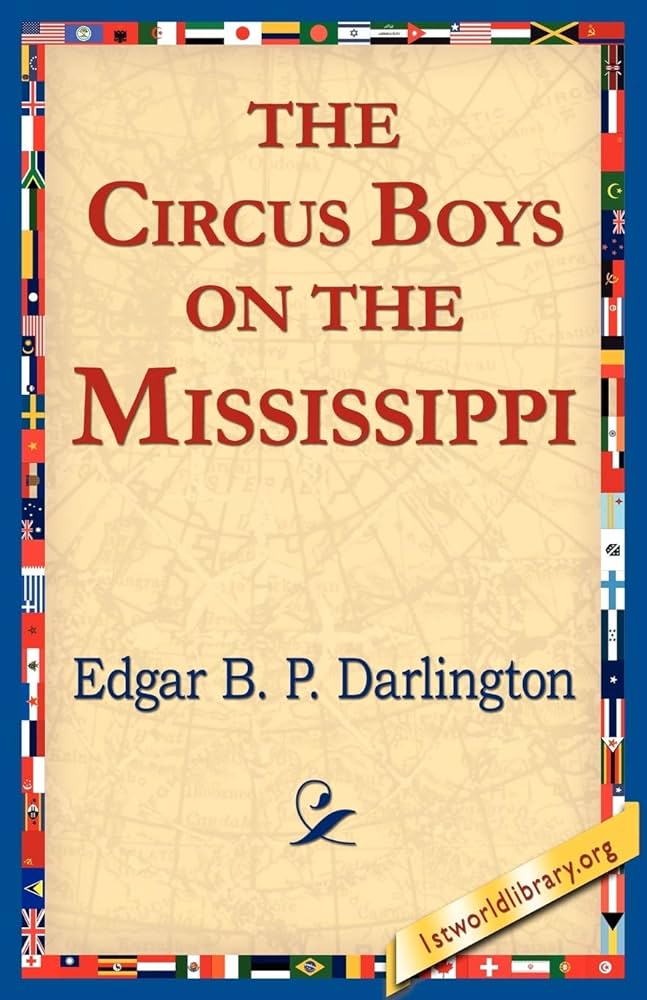Chapter I — The Circus Boys on the Mississippi
byChapter I opens with a glimpse into the bustling energy of circus life, where every day brings new performances and complex relationships. As Teddy Tucker and Phil Forrest prepare for their roles under the big top, the mood shifts with the arrival of Diaz, a new clown whose fiery temperament stirs tension. Phil notices the icy look Diaz throws at Teddy during a show and confronts his friend about it afterward. Teddy, with his usual mix of defiance and humor, admits to having disrupted Diaz’s act by kicking his prop—a move that, while amusing to some, crossed a line. Phil’s sense of fairness kicks in, urging Teddy to take responsibility and extend an apology. He reminds Teddy of the importance of mutual respect, not just for their own reputations, but for the smooth running of the entire show. The moment marks the beginning of a deeper conflict, wrapped in humor but edged with real consequences.
Teddy, stubborn but not heartless, agrees to Phil’s suggestion, though his apology is anything but graceful. Instead of soothing the tension, his approach provokes Diaz further. In a flash of temper, Diaz flings Teddy across the dressing tent, shocking the nearby performers. Phil immediately steps in, not with fists, but with words, trying to defuse the situation. He speaks with calm but firm resolve, insisting that violence has no place in their close-knit troupe. Diaz, unmoved, lashes out again—this time aiming his fury at Phil. The encounter doesn’t escalate into a full brawl, thanks to Phil’s restraint and control. Still, the incident leaves an unmistakable mark, and the mood in the tent turns from lighthearted to cautious.
Phil’s measured response to the conflict not only protects his friend but reinforces his emerging role as a leader within the circus. While others might have retaliated in kind, Phil chooses diplomacy and restraint, showing maturity beyond his years. His actions earn him quiet respect from some of the older performers, who’ve learned the hard way that circus life only works when every member plays their part without ego. Conflict, while inevitable, must be resolved with a balance of assertiveness and tact. Phil understands this, and though he won’t tolerate bullying, he avoids turning every confrontation into a spectacle. In contrast, Teddy’s impulsiveness adds humor to their duo, but also invites trouble, which Phil often ends up sorting out. Their differences make them stronger as a team, each filling in the gaps of the other’s weaknesses.
Meanwhile, Diaz’s behavior creates an undercurrent of unease. His willingness to react violently over a perceived slight raises eyebrows among the circus crew. Though no formal complaints are made, whispers ripple through the camp. Everyone knows that peace in a traveling circus is delicate. Trust and cooperation hold the show together more than the ropes and poles that support the tents. Mr. Sparling, the owner, may not have witnessed the fight, but performers begin watching Diaz more closely. Such aggression, if left unchecked, can damage the cohesion needed to perform dangerous acts safely. The chapter subtly plants this concern, allowing it to simmer in the background while the show, as always, must go on.
Outside the tent, preparations for the next performance continue. Children laugh as animals are led into place, and musicians tune their instruments beneath the bright circus banners. This normalcy contrasts with the tension backstage, where reputations are being formed and alliances quietly shift. Teddy and Phil, after a brief moment of reflection, return to their duties, determined not to let the morning’s drama derail their day. Phil checks their gear with extra care, while Teddy entertains nearby children with exaggerated stories of his “aerial flight” courtesy of Diaz. It’s a moment of levity that lightens the mood, reminding everyone that even amidst conflict, joy and humor are never far away in circus life. These little moments—filled with resilience, wit, and camaraderie—are what keep the troupe bonded through long journeys and tight schedules.
As the chapter draws to a close, the dynamics among the performers begin to crystallize. Phil is emerging as a thoughtful, dependable figure, someone others can look to when uncertainty arises. Teddy, while brash, reveals a loyal heart and an unmatched gift for comic relief. Together, they represent the spirit of the Sparling Combined Shows: daring, imperfect, but always moving forward. Diaz, now established as a wildcard, introduces a necessary edge to the story—an unpredictable element that will likely resurface. The stage is set not just for thrilling acts under the tent, but for the intricate, personal stories that unfold behind it.

